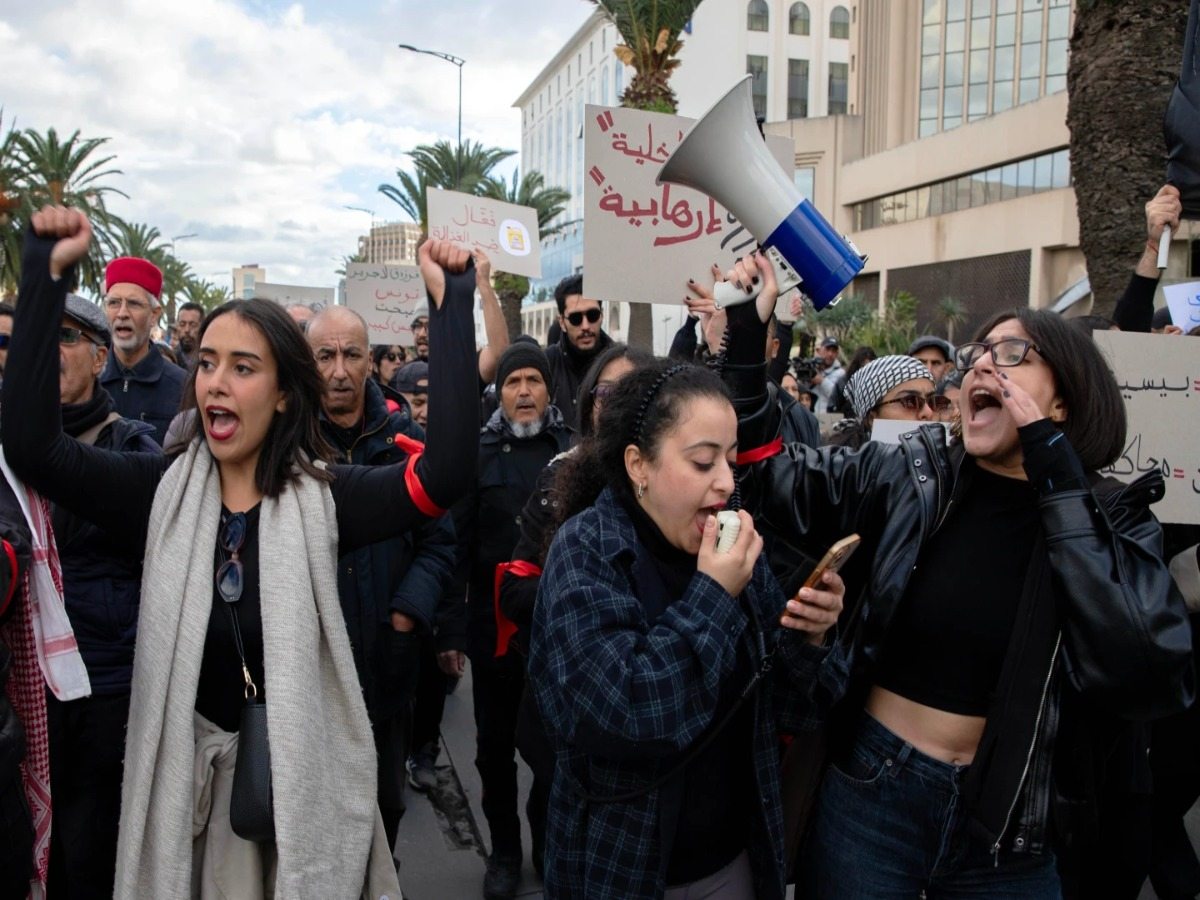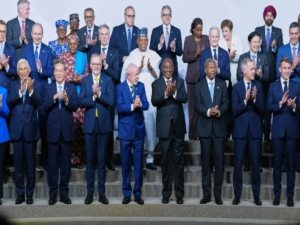Crowds filled central Tunis on Saturday as Tunisians rallied against what they see as President Kais Saied’s tightening grip on power.
Families of prisoners joined activists under the theme “Against Injustice,” forming a diverse coalition united by concerns over shrinking civic space. More than a thousand people took part, many dressed in black while chanting slogans such as “The people want to overthrow the regime,” “What a great country! Oppression and tyranny!” and “No fear no terror, the street belongs to the people.”
Saturday’s gathering followed a week of growing unrest across the country. Protests have intensified as Tunisians confront a mix of political conflict, economic decline and an intensifying crackdown on critics. Just days earlier, journalists marched against limits placed on press freedom and the temporary shutdown of several civil society organizations.
READ ALSO: Tunisians rally against Saied’s rule on anniversary of power grab
Participants also accused the president of meddling in the judiciary and using police power to sideline opponents. One of the organizers Ayoub Amara said the protest aimed at calling attention to those jailed for their political views. He added that the unrest reflected broader frustrations, citing environmental protests in the phosphate hub of Gabes and continued arrests under Tunisia’s anti-terrorism laws.
“All the progress of the past 14 years has been overturned,” Amara said. “Tunisia is big enough for all Tunisians, and no single person can rule it according to his whims.”
The demonstration carried a personal weight for many families. Monia Brahim, whose husband Abdelhamid Jlassi is an imprisoned opposition figure, said she joined the march because “many Tunisians are facing deep injustice.” She told The Associated Press, “I came to defend my rights as a citizen.” Political prisoners know for a fact that they are in prison to pay the price for their principles, their constitutional right for civil and political activism, and are being held hostage by the regime established today in Tunisia.”
Several detainees remain on hunger strike, including constitutional law professor Jawher Ben Mbarek, who has refused food for more than twenty days.
Human rights groups have raised growing alarm over the direction of the country. Human Rights Watch reports that more than fifty people, among them politicians, lawyers, journalists and activists, have faced arbitrary arrest or prosecution since late 2022 for expressing their views or participating in peaceful political activity. The group also warns that Tunisia’s anti-terrorism and cybercrime legislation is being weaponized to silence dissent.
Saied maintains that his actions are necessary to eliminate corruption, remove “traitors” and repair state institutions.
A jurist and former constitutional law professor, Saied has served as Tunisia’s fifth president since 2019. Before entering politics, he taught law and led the Tunisian Association of Constitutional Law for nearly twenty-five years. He ran as an independent candidate in the 2019 presidential race, presenting himself as a social conservative focused on combating corruption. Backed at the time by Ennahda and figures across multiple political factions, he won the runoff with 72.71 percent of the vote and took office on 23 October 2019.
His presidency has since been defined by sweeping consolidation of authority. Public frustration over economic hardship, police conduct and the pandemic fuelled protests in early 2021. On 25 July that year, Saied dismissed parliament and Prime Minister Hichem Mechichi in what critics labelled a self-coup. Judicial leaders were later removed and prominent opposition figures arrested.
Ruling by decree, Saied pushed through a new constitution that extended presidential powers and called for early legislative elections. He secured a second term in October 2024, extending a tenure increasingly marked by democratic backsliding and political repression.
READ ALSO: Historic South Africa–hosted G20 adopts declaration without the United States










